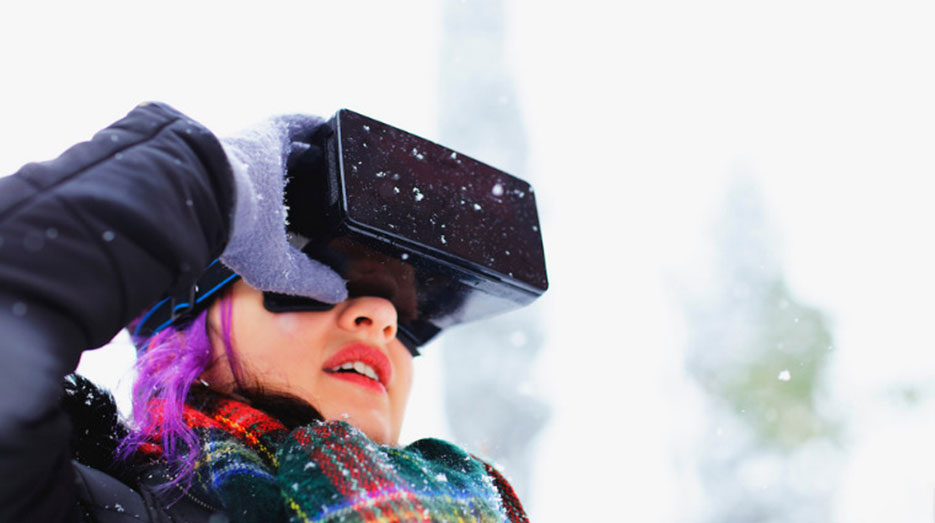
Virtual Reality Project Bringing Mental Health Supports to Youth in Community of La Loche
Saskatchewan Polytechnic are co-creators of the culturally responsive wellness initiative through the Sekwe’ha applied research project.
Mental health supports aren’t equally available to all people across Canada—and major work lies ahead to make that a reality. To help address this need, a Saskatchewan Polytechnic applied research project is investigating the creation of innovative mental health supports for Indigenous youth using virtual reality.
The Sekwe’ha: A community-based research approach to virtual mental health supports for indigenous youth, is an applied research project focused on working with students in La Loche on how to use virtual reality to provide better mental health supports and enhance accessibility to care. Sekwe’ha in Dene means “for the children.”
Lindsey Boechler, Sask Polytech researcher for the Centre for Health Research, Improvement and Scholarship, previously served northern communities as a paramedic. “This is where I first witnessed the barriers facing people living in rural and remote areas,” she says. “Many people have to travel for hours to access care many of us take for granted. The Sekwe’ha project will look at how we can connect rural and Indigenous people from where they are to where they need to be using virtual reality to provide mental health supports.”
The project was launched in fall 2020 and Boechler has been working directly with Dene High School students and a local research assistant, who is fluent in Dene, to find a collaborative solution. Students and the community of La Loche are co-creators in the creation of the new virtual reality supports. Last year, the first round of data was collected through an environmental scan, interviews and a focus group. The Dene language is important component of this project. One of the focus groups was completed in Dene to be inclusive of the community’s elders.
“I wanted to get involved with the Sekwe’ha project because it’s being developed from scratch. It’s a great idea,” says research assistant, Rhonda Herman. “Dene High School students participate in the project after school, during lunch and sometimes during class time. The school has been very supportive of the project and is accommodating Sask Polytech and the student participants on this collaboration.”
“This is a unique project as we are looking to balance the traditional knowledge of the elders, along with what the students see as their own pathways to wellbeing using new technologies,” says Boechler. “This has never been done before. Somebody from outside the community will not be providing the solution. It will be developed by the local community, so they feel ownership of what's happening and the outcome.”
The results from the first round of data collection show there is a gap in mental health care. Care providers have visited the community to provide support, but this is often on a temporary basis. There are also some unhealthy coping mechanisms being used in the community.
The project is still in early stages and the applied research team does not know what the final virtual resource will look like. “The final product is still unclear. We do know the tool will include virtual reality and asynchronous tools to support mental health and wellbeing. We hope to have a prototype developed later this year and introduce it to Dene High School students to trial and provide feedback,” says Boechler. “The collaborative project is bringing Indigenous traditions into virtual reality.”
Mental healthcare has not been experienced equally by all Canadians.The hope is this virtual mental health resource can be used in other rural and Indigenous communities.
The Sekwe’ha project is funded by Centre for Health Research, Improvement and Scholarship (CHRIS) at Saskatchewan Polytechnic, Saskatchewan Health Research Foundation (SHRF) and the College and Community Social Innovation Fund (CCSIF) managed by the Natural Sciences and Engineering Research Council of Canada (NSERC). CHRIS supports faculty in the School of Health Sciences and School of Nursing in achieving their scholarly development goals and aspirations. Through CHRIS faculty can access support for publication and presenting, grant and funding applications, and request in-service sessions on a variety of scholarly topics.
February 2022